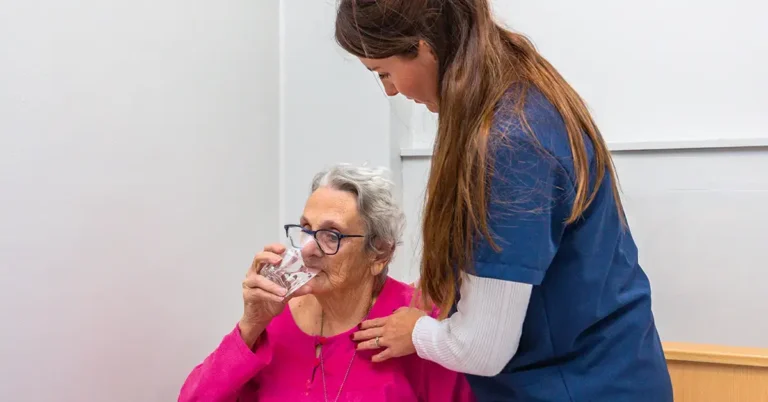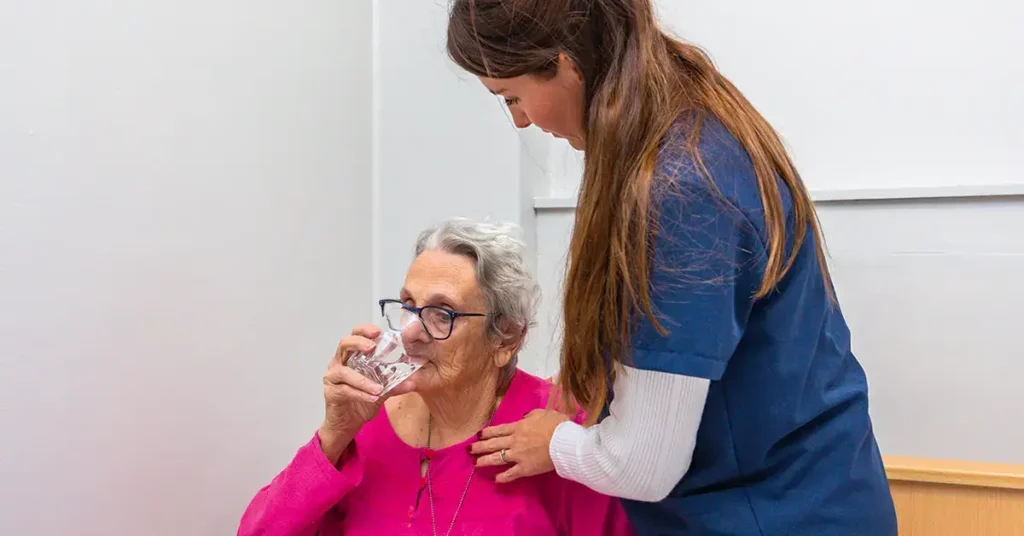From sipping a coffee to enjoying dinner, swallowing is something most of us do without thinking. It’s a process we take for granted until it becomes difficult.
Experiencing swallowing problems is also known as dysphagia, and it can affect people of all ages. However, it is particularly common in adults, especially those who have experienced certain illnesses, surgeries, or as part of the aging process. Recognising the early signs of swallowing difficulties is important as untreated dysphagia can lead to serious complications like choking, dehydration, weight loss, or even pneumonia.
Signs to Look Out For
A cough here and there when eating or drinking, especially in older adults, is often acceptable and may not signal a serious problem. However, persistent coughing or throat clearing throughout a meal should not be ignored. If this occurs, an immediate referral to a speech-language therapist for a swallowing assessment is strongly recommended.
Other red flags:
- A wet or gurgly voice after swallowing suggests food or liquid may be sitting around the vocal cords.
- Difficulty chewing or moving food around the mouth due to weak muscles, dental problems, or neurological conditions.
- A feeling that food is stuck in the throat or chest.
- Unintentional weight loss or dehydration, often linked to reduced food and fluid intake.
- Recurring chest infections or pneumonia caused by food or liquid entering the lungs (known as aspiration).
- Taking much longer to finish meals or feeling very tired after eating.
Who Is Most at Risk?
Swallowing difficulties often occur as we age due to the natural changes in muscle strength and coordination.
Stroke or other neurological conditions such as Parkinson’s disease, dementia, or multiple sclerosis can also cause swallowing issues. Traumatic brain injuries, prolonged intubation, head and neck surgeries or cancer treatments that affect the mouth, throat, or esophagus can also cause problems with swallowing.
When and How to Seek Help?
If you notice persistent coughing, changes in your voice after eating, unexplained weight loss, or frequent chest infections, don’t wait. A swallowing assessment can help identify the problem early and prevent serious complications.
Remember, you don’t need to wait for a referral from your GP to see a speech-language therapist. In many cases, you can book an appointment directly with a qualified speech therapist for a swallowing assessment and guidance on the next steps.
Ways Speech Therapy Can Help
Speech-language therapists specialise in diagnosing and managing swallowing difficulties. They can recommend safe swallowing strategies, exercises to strengthen the muscles around the mouth and throat, and appropriate food or fluid textures. They also work closely with dietitians and medical teams to ensure you stay safe, hydrated, and well-nourished.
With early assessment and the right therapy, many people can return to eating and drinking safely, improving both health and quality of life.




